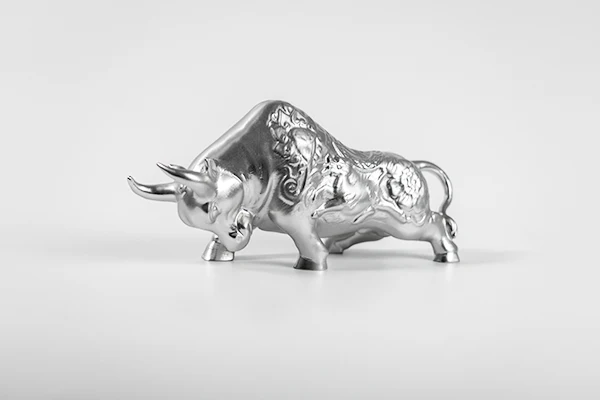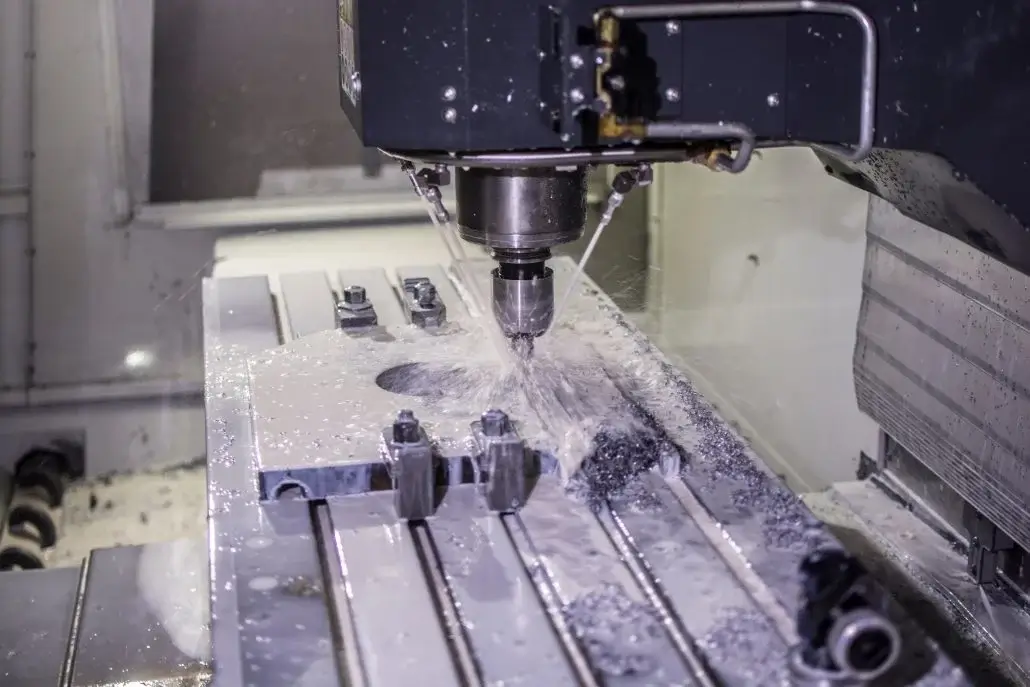1、What is CNC machining?
CNC machining is a state-of-the-art process specifically designed to create high-precision custom CNC machined parts. The process typically involves the use of computer-controlled tools, such as lathes and mills, to precisely cut, shape, and drill materials into desired shapes to create custom CNC machined part shapes that meet design requirements.
2、Composition and principle of CNC machine tools
A computer numerical control (CNC) machine represents an automated machine tool. It consists mainly of a computer, control electronics, and a motor, which work in tandem to accomplish a variety of complex machining tasks. The computer acts as the core control unit and is responsible for directing the movement path of the tool head. The control electronics, on the other hand, communicates specific operating instructions to the machine based on a specific tool change program (i.e., a “G code”), where each letter and number corresponds to a specific type of movement of the cutterhead.
The motor drives the tool to perform the corresponding operation according to the instruction. With their versatility to perform a wide range of functions such as drilling, cutting, and welding, and their ability to perform complex machining actions with extreme precision and accuracy, CNC machines are one of the most versatile machining machines available, producing virtually any custom CNC machined part imaginable, whether it’s metal, plastic, or other materials, including cutting, drilling, polishing, and other operations.
3、Types of CNC machine tools
1:Vertical CNC machine tools
Vertical CNC machines are the most common type of CNC machine and are widely used in the production of custom CNC machined parts. These machines typically have a height range of about 30 inches to 50 inches above the floor. Vertical CNC machines are large due to the need to accommodate key components such as computer systems, control electronics, and motors.
2:Horizontal CNC machine tools
Horizontal CNC machines also play an important role in CNC machining, and while they are not as common as vertical machines, they excel in cutting accuracy and are more precise and detailed. Horizontal CNC machines are typically located between 10 inches and 30 inches below ground and are generally equipped with more powerful motors and run at higher speeds than vertical machines, making them uniquely suited for the production of specific custom CNC machined parts.
3:Deep Hole CNC Machine Tools
Deep CNC machines can be used to cut a wide range of materials and are commonly used in the production of custom CNC machined parts. It typically uses a five-axis system to machine a wide range of materials, including plastics and aluminum. However, the relatively high price of this type of machine is one of its obvious drawbacks.
4:Other types
Stainless steel is ideal for custom CNC machined parts because of its excellent corrosion resistance, especially for the manufacture of high-performance components. It offers greater strength and durability than aluminum and steel, and is able to meet the production needs of custom CNC-machined parts that require higher quality.
5:copper
Copper is a soft-textured metal that is perfect for custom CNC machined part production. Due to its soft nature, it can be cut with almost any tool.
6:plastics
Plastic is an affordable and versatile material, making it an excellent choice for both prototype and custom CNC machining of production parts. Plastic can be easily machined into complex shapes and sizes to meet a wide variety of custom CNC machining part design needs.
7:carbide
Carbide materials also have their own unique applications in the field of custom CNC machined parts. It has special physical and chemical properties to meet the production needs of parts with special requirements for hardness and wear resistance.
5、Customized surface treatment for CNC machined parts
1:anodic oxidation
Anodizing is a specialized process that creates a coating on the surface of aluminum (or titanium) to give it a variety of colors, and is commonly used to finish custom CNC machined parts for the automotive industry and military products, among others. The process produces a layer of anodic oxide on the surface of the metal by electrolysis.
2:lacquer
Painting is a surface treatment in which paint is applied to the surface of the workpiece without producing oxides. The color of paint used varies by industry and product, and the following steps need to be followed when applying the painting process: first, the surface is thoroughly cleaned with an IPA or degreaser; second, a primer is applied; and finally, a color and clear coat or lacquer is applied according to the final desired shade to ensure an aesthetically pleasing and protective surface for the custom CNC machined part.
3:burnish
Polishing is a process performed on roughed out custom CNC machined parts to create a smooth surface, remove scrap, and sometimes deburr to improve the surface quality of custom CNC machined parts.
4:electroplated
Electroplating is a way to add an extra layer of protection and durability to custom CNC machined parts. By covering the surface of the part with a thin film of metal, the strength and durability of the part is enhanced.
5:sandblast
Sandblasting is the process of removing burrs and other imperfections from the surface of custom CNC machined parts using abrasive materials such as sand or glass beads, which can effectively improve the surface quality of the part and increase its accuracy and aesthetics.
Why Choose a Chinese CNC Manufacturer to Machine Parts?
When looking for custom CNC machining services, China CNC Machine Shop is undoubtedly the best choice. China CNC Machine Shop has the experience and advanced technology to manufacture a wide variety of different types of CNC machined parts, and these machines make the process of producing custom CNC machined parts much easier and more efficient.
Chinese CNC manufacturers are chosen for their cost-effectiveness, proven technology and efficient supply chain. With significant cost advantages (labor, materials, scale effect), as well as internationally advanced machine tools (e.g. Demagi, Mazak) and stringent quality control systems (ISO/AS certification), Chinese manufacturers can meet the needs from precision parts to large-volume orders. In addition, well-established industrial clusters (e.g. Yangtze River Delta, Pearl River Delta) ensure quick response and delivery, which is particularly suitable for the machining needs of the automotive, electronics, and aerospace industries, making it an ideal choice for balancing quality, speed, and cost.





